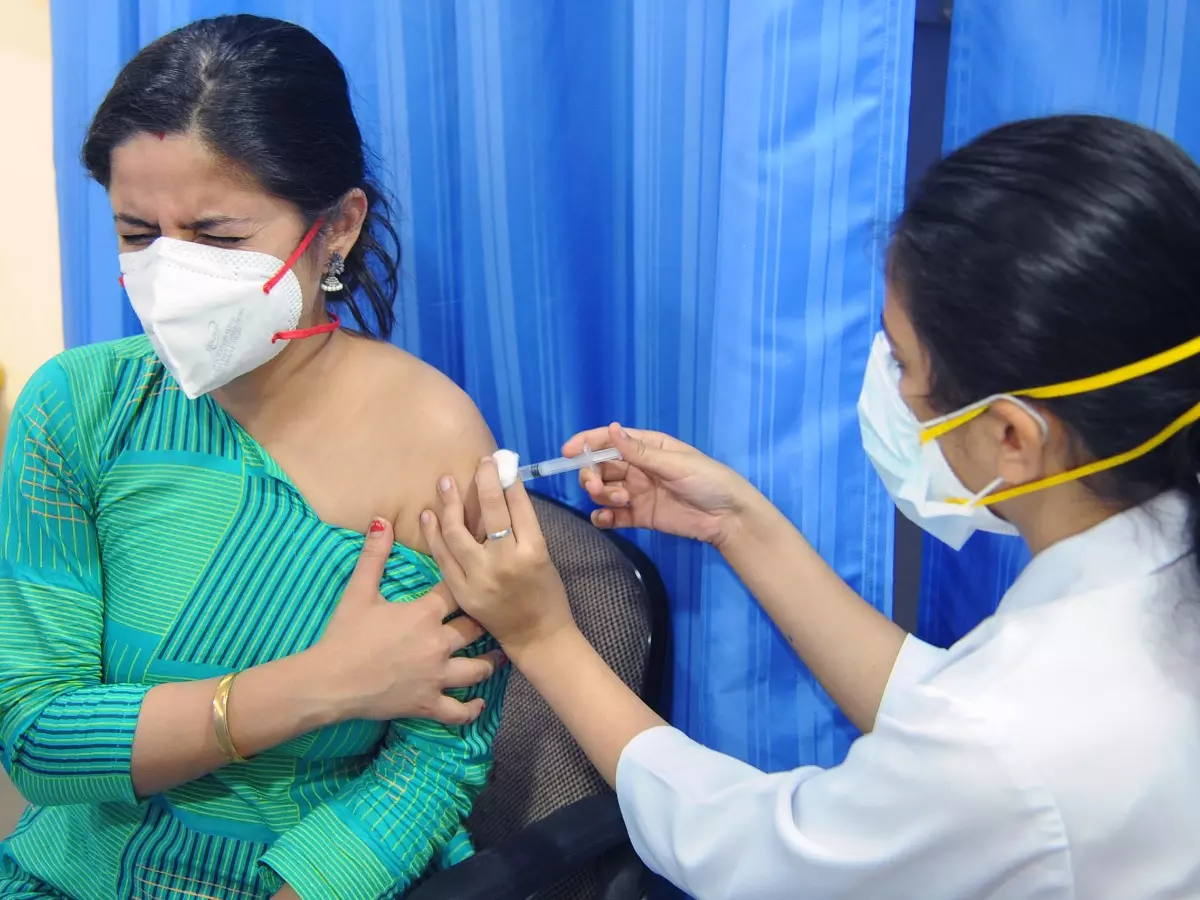Blood Clots From COVID-19 Vaccination Could Be Due To Wrong Injection Technique, Finds Study
A study done on mice by clinician scientists in Munich University in Germany and a research institute in Italy found this very rare complication of the adenovirus vaccine could be happening due to the vaccine being injected into the blood stream.

Some recipients reporting blood clots have been a concern across many countries as the COVID-19 vaccines were rolled out.
Though the number of such cases was minuscule, it had resulted in the AstraZeneca, Johnson & Johnson vaccines being temporarily suspended in many countries.
However, a new study has suggested that it may not be the vaccines, but the way they are administered are causing the blood clots.
 AFP/ REPRESENTATIONAL IMAGE
AFP/ REPRESENTATIONAL IMAGE
Study on mice
A study done on mice by clinician scientists in Munich University in Germany and a research institute in Italy found this very rare complication of the adenovirus vaccine could be happening due to the vaccine being injected into the blood stream.
The preprint posted on bioRxiv.org earlier this week stated that the study highlighted accidental intravenous injection as a potential mechanism for post-vaccination thrombotic thrombocytopenic syndrome (TTS) also called vaccine-induced immune thrombotic thrombocytopenia (VITT).
 AFP
AFP
What experts say
¡°If the tip of the needle doesn¡¯t reach deep enough in the muscle or if it hits a blood vessel, the vaccine can be directly injected into the bloodstream. This can happen when the skin is pinched up by an inadequately trained health worker. Intra muscular injections are meant to be given without pinching up skin, so that the needle tip reaches the muscle. When the skin is pinched up, the needle tip reaches only the subcutaneous tissue. When that happens, not only is the vaccine not absorbed properly, but rarely it can hit one of the blood vessels that travel through the layer located between skin and muscle which contains a network of blood vessels,¡± Dr Rajeev Jayadevan, a member of IMA¡¯s National Task force for Coronavirus told The Times of India.
Why is there a difference in the incidence of vaccine-related clots between women & men?
¡ª Rajeev Jayadevan (@RajeevJayadevan) July 3, 2021
1. Inadvertent injection into a vein can cause severe reaction. Subcutaneous tissue is rich in blood vessels.
2. Women have more deltoid fat pad thickness. ?
1/2https://t.co/zm8GdjUOjj
Anti-clotting drugs can help
In a related development, scientists in Canada have found a new lifesaving treatment for people suffering from rare blood clots associated with Covid-19 vaccination.
 BCCL
BCCL
The researchers at McMaster University recommend a combination of anti-clotting drugs and high doses of intravenous immunoglobulin to combat VITT.
VITT is a rare side effect of adenoviral vector vaccines against Covid-19. It occurs when antibodies attack a blood protein, which results in the activation of platelets in the blood, causing them to clump together and form clots.
 BCCL
BCCL
The treatment, described in The New England Journal of Medicine, has proven effective in three Canadian patients who received the AstraZeneca vaccine.
"If you were a patient with VITT, I¡¯d be telling you we know of a treatment approach," said Ishac Nazy, associate professor of medicine at McMaster University.
"We can diagnose it accurately with our tests, treat it and we know exactly how the treatment works," Nazy said.
The researchers noted that blood samples taken from the patients after the new treatment showed reduced antibody-mediated platelet activation in all cases.
